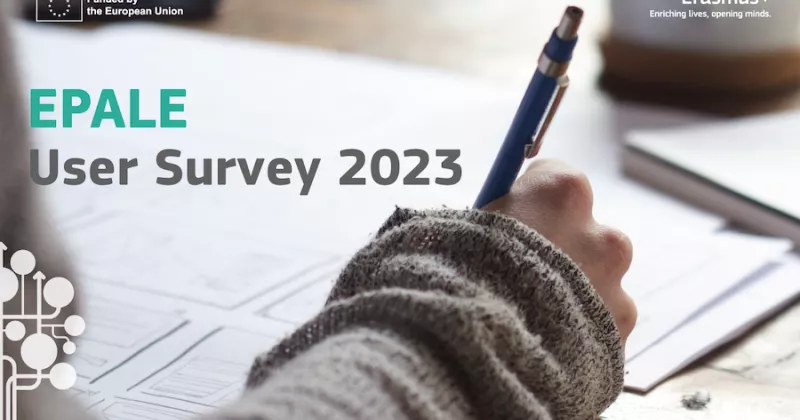Nordic Perspectives: Include – Inclusive skills opportunities
The Nordic EPALE NSS and NVL have gathered content on the thematic focus ’Include’, which highlights initiatives and methods that promote equality and inclusion, with a particular focus on vulnerable groups of learners.

The Nordic Perspective Series is a quarterly collection of articles, information and good practices from the Nordic countries on the thematic focuses of the EPALE platform. The series is co-created by the EPALE Nordic NSSs of Denmark, Finland, Iceland, Norway, Sweden and NVL. This article focuses on include – inclusive skills opportunities.
Learning opportunities need to fit the diverse needs of diverse groups of learners. We have to make sure that no one is left behind and we need to activate more people to uptake skills opportunities. What is the role of Adult Learning and Education in recognising and valuing diversity? How do we provide support to vulnerable groups of learners?
EPALE will in particular focus its attention on third-country nationals, persons in need of basic skills education and young adults, especially those not in education, employment or training (NEETs). How do we best reach out to these groups? How can we support women’s employment and participation in learning?
The other side of the coin, besides learning, is speeding up and facilitating the validation of skills and recognition of qualification, including of third-country nationals.
This focus will highlight initiatives and methodologies that foster equity and inclusion, with special attention to vulnerable groups of learners. In this collection of articles, the Nordic EPALE NSS focus on the sub-theme ‘prison education’.

Find out more about include – Inclusive Skills Opportunities in the Nordic countries by reading the country-specific descriptions of the theme and by clicking on the links and content in each country’s section.
Denmark: Education as a way out of crime. The Danish prison education system offers wide range of education to the adult inmates, because education leads to self-sufficiency.
Education is a way out of crime, a way to self-sufficiency og a way to become a citizen in a democratic society like all other citizens based on a commen frame of reference. "Our goal with prison education is the same as with all out other employment-oriented offers - that the inmates get out and live a crime-free life."
Read the blog here. The blog post is available in English and Danish.
Finland: “Being ignorant is not a shame, but refusing to learn is” – Building up basic skills, recognition of prior learning and expertise by experience as tools for attachment to society
Around 5,000 prisoners are released in Finland every year. The key objective of a prison sentence is the prisoner’s holistic rehabilitation and reintegration into society. The achievement of this goal is promoted in Finnish prisons in many ways, which include social rehabilitation, preparation for release, building up the prisoner's resources, programme work that promotes reintegration as well as studying and working while the prisoner is still serving their sentence. This article has a particular focus on one of these activities: the possibilities of studying and learning in Finnish prisons.
Read the blog here. The blog post is available in English and Finnish.
Iceland: Prison Alternatives in Iceland: Rehabilitation or Budget Concerns?
Iceland have developed different types of prison alternatives to meet a growing number of prison convictions over time. This is for example more non-custodial sanctions, community work electronic monitoring and a halfway house. More professional help to inmates, including rehabilitation programs, both inside prisons and after release, are still limited and typically understaffed.
Read the blog post here. It is available in English and Swedish.
Sweden: Motivation and inclusion help inmates discover their potential
To reduce recidivism, the Swedish Prison and Probation Service are giving convicted prisoners the opportunity to acquire new skills and knowledge. This could help them to look for work once the have served their sentence. Dennis Hall and Nicholas Stroud, vocational teachers at Brinkeberg Prison, say that, “if we can help someone towards wanting to apply for a job or to study, then we have succeeded.”
Read the blog post here. It is available in English and Swedish.
Sweden: We adapt teaching to individual needs
EPALE has interviewed teachers who work for the Swedish Prison and Probation service to learn how they work with inclusion.
Read the blog here. The blog is available in English and Swedish.
Annica Skarphagen is a teacher at a closed women’s prison in security class two, which is the highest security class for female prisoners. Teaching in this setting is special and the people who work here are also locked in. “Early on, it was not easy to deal with this situation and all the security that is required. Being locked in and not being able to move freely was difficult, but now I can’t imagine working anywhere else.”
Read the blog post here. The blog post is available in English and Swedish.
NVL: Motivates creative collaboration to give inmates increased learning
Those who serve time in Nordic prisons are given daily tasks and have opportunities to attend school. Many have previously dropped out of school, and perhaps also had a bad experience with school. When work and school, practice and theory, are better linked, it can provide motivation and good learning. A small example from the Danish prison Kragskovhede.
Read the article here. The blog is avaiable in Norwegian.




